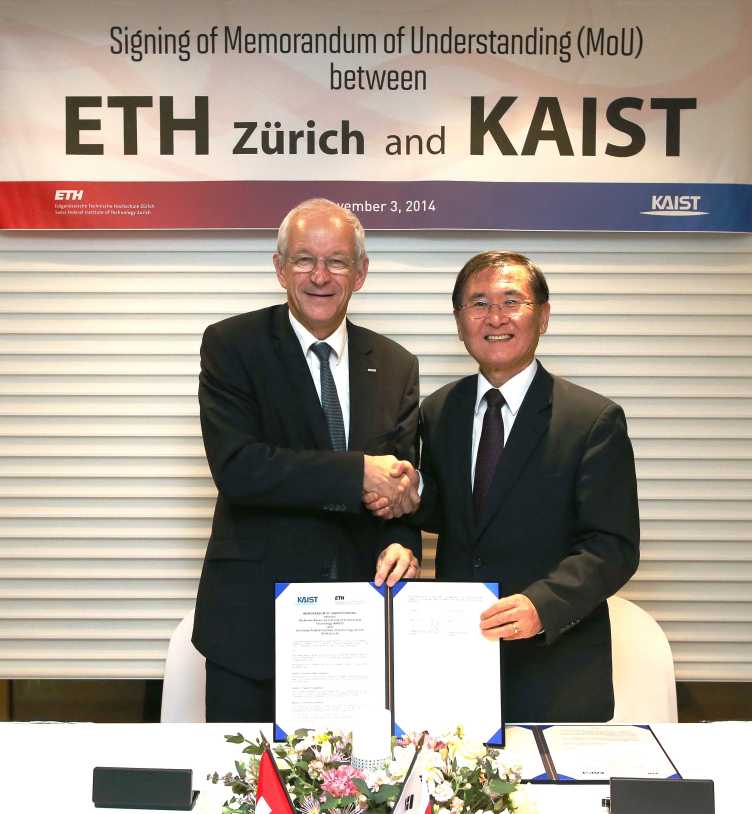ETH Zurich Strengthens Ties with South Korean Universities
President Ralph Eichler, ETH Zurich signed agreements this week facilitating research cooperation and student exchanges that strengthen the institution's relationship with South Korean universities.

ETH Zurich's President, Ralph Eichler visited the South Korean capital of Seoul this week where he spoke in a plenary session on "Youth Start-ups and Job Policies" at the Global Human Resources (HR) Forum 2014. Transferring its knowledge to the private sector and society at large is one of ETH Zurich’s primary concerns with more than 80 new patent applications filed each year and the 280 spin-off companies that have emerged from the institute in the past 17 years. President Eichler emphasized that ETH Zurich helps to find long-term solutions to the global challenges of energy supply, risk management, urban development, global food security, human health, and medical technology.
ETH Zurich's Cooperation with South Korean Universities
During his visit to the Republic of Korea, President Eichler signed cooperation agreements on behalf of ETH Zurich with the Korea Advanced Institute of Science and Technology (KAIST) and Pohang University of Science and Technology (POSTECH). ETH Zurich also enhanced its current cooperation agreement with Seoul National University.
As a particle physicist, President Eichler enjoyed a visit to the Pohang Accelerator Laboratory, as well as, other institutes of science and technology on the South Korean peninsula with which ETH Zurich has established research relationships and exchanges. The Korean National Science Foundation and the Daegu Gyeongbuk Institute of Science and Technology, for example, currently collaborate with ETH Zurich on micro robotic research for biomedical applications that deliver targeted drug therapy, minimally evasive surgery, and tissue regeneration.